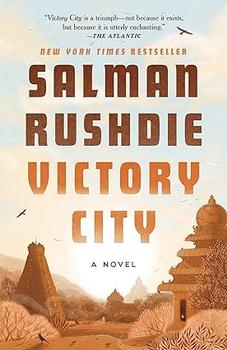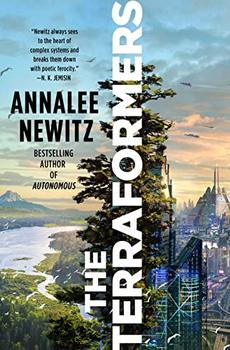Summary | Excerpt | Reviews | Beyond the book | Read-Alikes | Genres & Themes | Author Bio

It's been well documented that since the 2016 presidential election, sales of dystopian novels – twentieth-century speculative fiction tales that now seem less like speculation and more like prescience – have been on the rise. Readers who have found themselves reading Orwell and Atwood may find Lidia Yuknavitch's new work of speculative fiction – set in a future that seems nearer by the day – equally powerful and terrifying, as it offers a searing indictment of the path civilization finds itself on, as well as a horrifying vision of where that path might lead.
The year is 2049. Following a series of global catastrophes fueled by accelerated climate change and resulting wars, members of Earth's elite class have fled to a space station known as CIEL, which hovers above Earth, tethered to its dwindling resources through invisible umbilical cords known as Skylines. None of the denizens of CIEL knows the fate of the 99-percenters who were left behind on that "dying ball of dirt." As Yuknavitch's narrator, a storyteller and artist named Christine Pizan, notes, "How's that for a cosmic joke of the ruling class? The meek really did inherit the Earth. And the wealthy suck at it like a tit."
Christine (whose name and penchant for storytelling are drawn by the author from the medieval French author and Joan of Arc contemporary Christine de Pizan) and her fellow CIEL inhabitants bear little resemblance to what we would identify as human: hairless and featureless, with white skin and no sex organs, they are forbidden by their leader – a ruthless egomaniac named Jean de Men – to engage in sexual behavior, to form romantic attachments, or to live past the age of fifty. Christine, at age forty-nine, knows her days are numbered, and she, like her paramour Trinculo (whose name also indicates parallels to the character from Shakespeare's The Tempest), increasingly desires to stage some sort of rebellion against the man whose cruelty and lust for power have both ensured Earth's destruction and secured their (temporary) survival on CIEL.
That leader? The brutal and sadistic Jean de Men had his origins in reality television, of all things: "His is a journey from opportunistic showman, to worshipped celebrity, to billionaire, to fascistic power monger. What was left? When the Wars broke out, his transformation to sadistic military leader came as no surprise. We are what happens when the seemingly unthinkable celebrity rises to power."
In the absence of other forms of resistance and creative expression, Christine creates a form of storytelling art through a series of increasingly elaborate skin grafts – body modifications that tell a host of stories, including the story of Joan, a young eco-terrorist back on Earth who may have foreseen the future and who may have the peculiar capacity to change it. Christine's story is, increasingly, interspersed with Joan's, leaving readers to wonder for quite some time whether Joan is real or, rather, an invention of Christine's imagination or an expression of her anger or desire for an alternate future of her own. In the end, the facts of Joan's existence – as well as the prospects for Earth's continued survival – are left open to the reader's own interpretation.
Yuknavitch's novel draws its inspiration not only from literary and historical figures, but also from feminist and queer theory, politics, environmental studies, and philosophy. It touches on numerous issues of gender, environmental degradation, inequality, injustice, and the role of humans in ensuring their own survival – or destruction. Obviously reading The Book of Joan is not a light or easy endeavor; the braided narratives and the occasionally grotesque subject matter can make for ponderous, if crucial, reading. But for some readers, Yuknavitch's novel may provide, if not comfort, then at least a form of catharsis, an opportunity to envision and absorb the worst the future might hold and galvanize themselves to prevent such a future from coming to pass.
![]() This review was originally published in The BookBrowse Review in May 2017, and has been updated for the
February 2018 edition.
Click here to go to this issue.
This review was originally published in The BookBrowse Review in May 2017, and has been updated for the
February 2018 edition.
Click here to go to this issue.

If you liked The Book of Joan, try these:

by Salman Rushdie
Published 2024
The epic tale of a woman who breathes a fantastical empire into existence, only to be consumed by it over the centuries—from the transcendent imagination of Booker Prize–winning, internationally bestselling author Salman Rushdie.

by Annalee Newitz
Published 2023
From science fiction visionary Annalee Newitz comes The Terraformers, a sweeping, uplifting, and illuminating exploration of the future.
Your guide toexceptional books
BookBrowse seeks out and recommends the best in contemporary fiction and nonfiction—books that not only engage and entertain but also deepen our understanding of ourselves and the world around us.